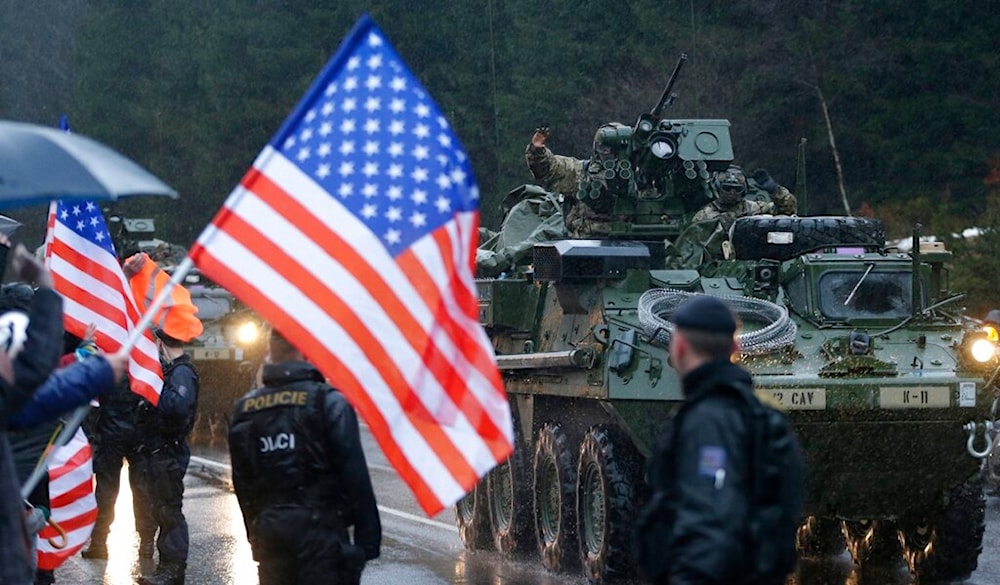Trump considers moving 35,000 US troops from Germany to Eastern Europe
According to the report, Trump is increasingly dissatisfied with European governments, accusing them of escalating the conflict rather than seeking a resolution.
-

Supporters welcome the US army convoy as it enters Czech Republic in Harrachov, Sunday, March 29, 2015 (AP)
US President Donald Trump is exploring the possibility of moving 35,000 US troops from Germany to Eastern Europe, citing growing frustration with European leaders' handling of the Ukraine conflict, The Telegraph reported Friday, citing sources familiar with the discussions.
According to the report, Trump is increasingly dissatisfied with European governments, accusing them of escalating the conflict rather than seeking a resolution.
"Trump is angry that they [Europe] appear to be pushing for war," a source close to the White House told The Telegraph.
One of the potential destinations for relocated troops is Hungary, according to the report.
Growing Strains Between Trump and NATO
Trump has long criticized NATO members for not meeting defense spending commitments.
On Thursday, NBC News reported that he is considering major changes to US participation in NATO, including potentially refusing to protect alliance members that do not fully meet their obligations.
As part of his push for NATO reform, Trump has demanded that all member states raise their defense spending to 5% of GDP.
His stance has raised concerns among European leaders about the US's future military commitments to the alliance.
Read more: EU launches ReArm plan, focuses on air defense, precision weapons
US Military Strategy and Russia-Ukraine Tensions
Trump's consideration of troop relocation comes amid growing tensions over the war in Ukraine.
The White House recently signaled the possibility of additional sanctions on Russia, with National Economic Council Director Kevin Hassett stating that Washington has "a heck of a lot of things that are left [to be targeted in Russia] for sure."
At the same time, the US has suspended military aid and intelligence-sharing with Ukraine, halting Kiev's access to satellite imagery critical for military operations.
This policy shift has coincided with Russia launching extensive missile and drone strikes, severely damaging Ukraine's energy infrastructure and prompting urgent calls for more Western support.

 2 Min Read
2 Min Read









